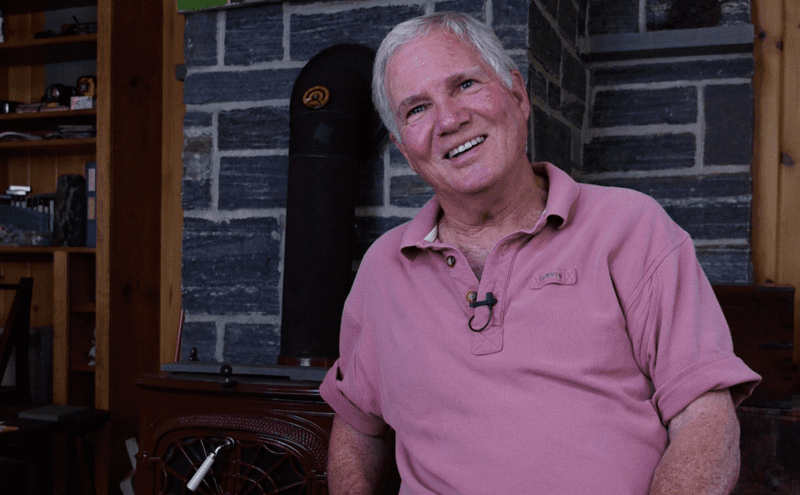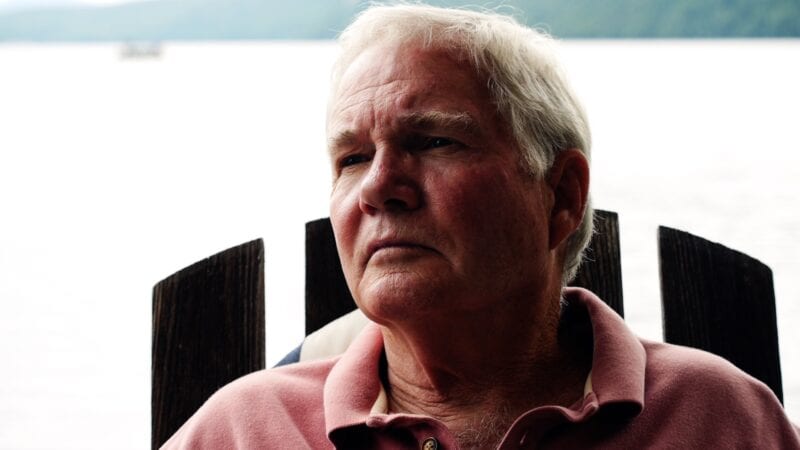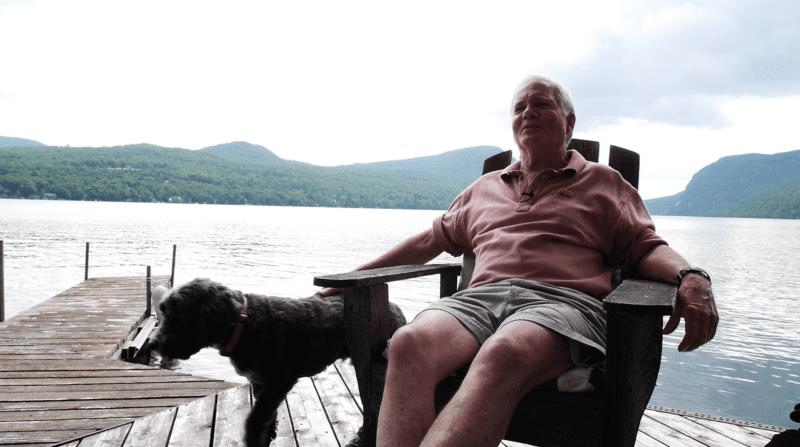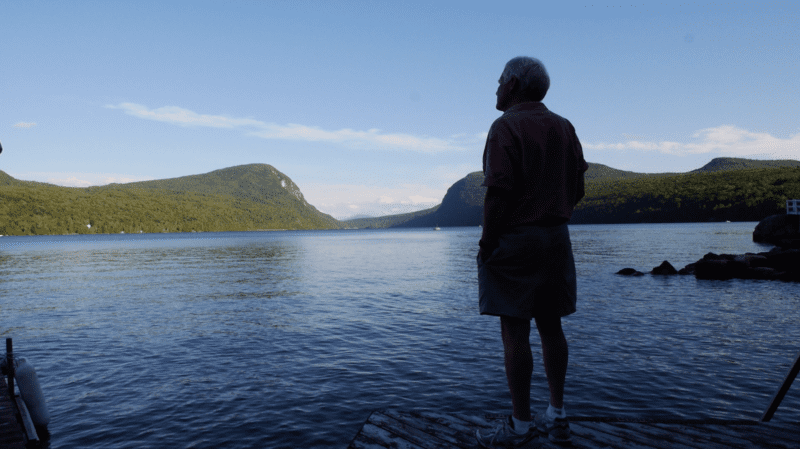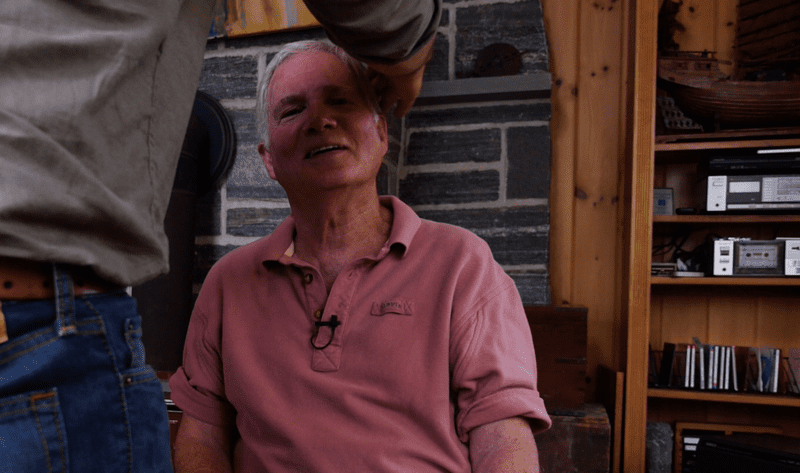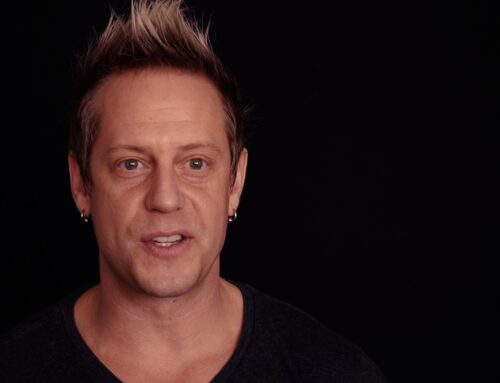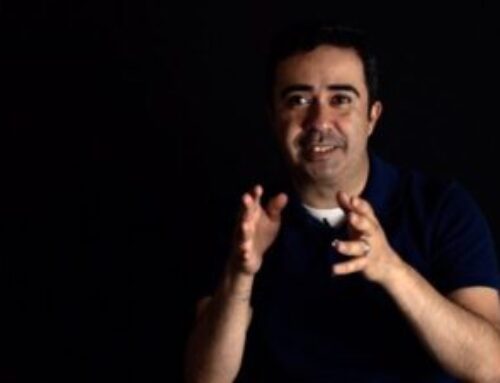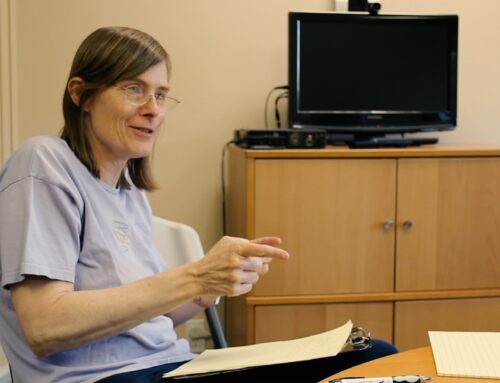BARRY GUITAR
When I found out that Gail Wilson Lew might get me an interview with Barry Guitar I almost did a backflip! For so many of us speech-language pathologists, we learned about stuttering through Barry’s textbook. Even the possibility of being able to interview him for WHEN I STUTTER was exhilarating. Of course, Barry (he insists upon being called by his first name) agreed to the interview and the nerves immediately set in.
The prospect of filming THE Barry Guitar would make many in our field nervous. As an unknown speech pathologist and filmmaker, I felt especially concerned about “getting it right”. That feeling was immediately quelled when I entered Barry’s home next to Lake Willoughby in Vermont.
Barry and his wife Carroll were so warm and wonderfully hospitable that my nerves dissipated into the ether. I think this ability to be humble and put people at ease may be the greatest impression Barry left on me. There he was, a professional at the top of his field, and there was no ego to be found. I will never forget that…
The interview itself was raw and revealing… Barry truly made himself vulnerable. After the interview, Carroll made us some sandwiches and we hopped in their boat to take a cruise around the lake. It was such an unexpected and humanistic thing to do with the guy that wrote your textbook from grad school. But “unexpected” and “humanistic” is exactly what you get from Dr. Barry Guitar CCC-SLP, BCS- F… or, as he prefers, just “Barry”.
I find myself really wanting to stutter so that I can have little warm victories and become friends with it and let it run its course without struggle.
What has been the response from others about you in the film?
The response from others about me in the film has been totally positive. People think it’s a really good segment. And they think the “Lenny” part is really funny and well done!
What was your favorite or most memorable part of the process of making the film?
The most memorable part of making the film was your visit to us at our summer cottage on Lake Willoughby. You were so interesting to talk with and hang around with.
What has surprised you about the film since it was first presented?
Well, once I saw the whole film, I was really impressed with how deep and emotional it was. And so well produced. Great cinematography!
What’s changed in your life since we saw you in the film?
I think I’ve just continued to become more and more open about my stuttering. Also, a few years after you made the film, I retired from active teaching, research, and clinical work. I finished the 5th edition of my textbook and I’m working on a biography of my therapist Charles Van Riper. That’s been quite an adventure. I’ve tracked down some of the people who were in my original therapy group and interviewed them about how Van Riper changed their lives. And I’ve talked to Van Riper’s son and some of his grandchildren, as well as others who knew Van Riper. Carroll and I had planned a trip to Kalamazoo, Michigan where Van Riper worked, in March to do more interviews and go through archival material there but we had to cancel that because of the pandemic, but we’ll do that trip in the late fall, I hope. So there are miles to go before I sleep.
What’s your relationship with stuttering now?
My relationship with my stuttering is surprising to me. I find myself really wanting to stutter so that I can have little warm victories and become friends with it and let it run its course without struggle.
What’s some advice for people who are on their journey with stuttering?
Try to notice any extra muscle tension you are putting into the posture you have when you stutter. Then, as you feel what you are doing, continue to let the sound out with less and less tension until the stutter is gone and you can release the word slowly and loosely. Keep good eye contact with your listener and feel it’s your right to stutter. If you can do this many times, your stutter will become looser and looser and it will become way less scary when you see a stutter coming up. What will be happening is this: when you end a stutter slowly and loosely and then release the word (with good eye contact), the reward and relief of getting the word out will cause you to non-consciously learn to be loose in your stutters. Then your stutters will become more brief and not very noticeable. Try it.
Purchase WHEN I STUTTER to watch
Barry and 18 other compelling individuals
talk about their journey with stuttering.
